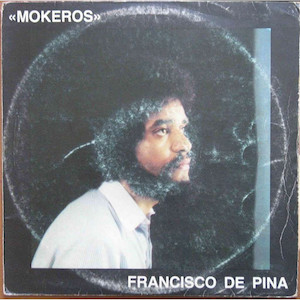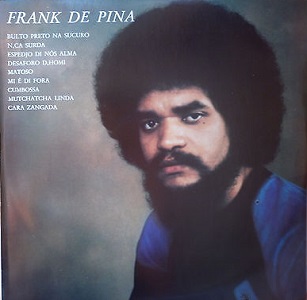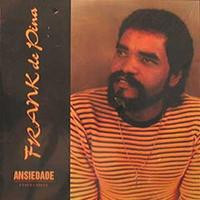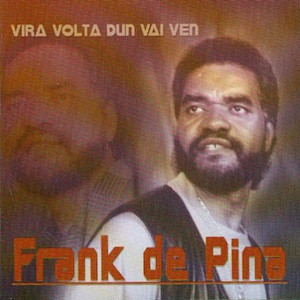Frank de Pina
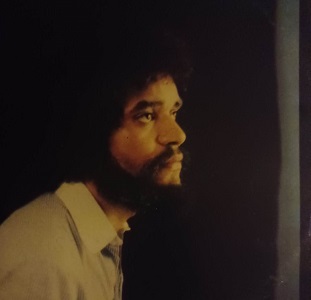
Francisco de Pina
Santana, Brava, 1955
Instrumentalist (drums), singer, songwriter
Born on the island of Brava, Frank de Pina spent his childhood in the city of Praia, where he lived from the age of 6 to 18. As a teenager, he participated as a drummer in the group Os Vulcânicos. Later he joined Os Camponeses in São Domingos with elements from Os Vulcânicos and others. He lived in São Vicente between 1973 and 1974, working in inter-island navigation, and shortly after the 25th of April he left for Portugal; where he worked in mechanical metalwork, at the same time he participated in an ephemeral group named Seis Crioulos. He returned to Cape Verde in 1976 and in 1979 at 24 years old moved to the USA.
He already had family members in the USA. The family’s connection to this country is old, as Frank’s grandparents were born there. In Boston, in the early days, he worked at a Polaroid factory, in the plastics industry, among other jobs. When it comes to music, the week he arrived he already had a group to play with. Autilio Correia “Toto”, a friend of his parents sent him a letter when he found out he was going to the USA telling him to look for him, as he would have a place in his group, Unidos de Cabo Verde. It was an experience that lasted a year. After he joined Cabo Verde 77, founded by Carlos Mendes, to replace the drummer, but he also sang. He stayed with this group the entire year of 1981.
Next was the time of Tabanka Djazz – remembering, as Frank de Pina points out, that there was a first Tabanka Djazz in the USA, before the group from Guinea Bissau that became famous a few years later. This first one, which recorded an album, lasted from 1982 to 1988, with a hiatus. Its members were Frank de Pina (drums and vocals), Antonio Cabral in the guitar (he is also the brother of Mikas Cabral, from Tabanka Djazz in Guinea), Rui Pina (drums and vocals), Dany Carvalho (keys), Amilton Tavares (guitar), Didé (bas), Hernani Medina “Naco” (percussion) and Daniel Santos “Nhelas” (percussion).
At Didé’s wedding, the musician recalls that Mikas played bass, and after that the group stopped, and the new Tabanka Djazz emerged. “This name, in fact, is later, as only Tabanka appears on the Guinean group’s first album, inspired by the album cover of Os Tubarões”, recalls Frank de Pina to Cabo Verde & a Música – a Virtual Museum.
Then the singer-drummer participated in the group Arpa Sound, which lasted from 1985 to 1987, with Zerui de Pina (bass), Gau Salgado (vocals), António Teixeira (guitar), José Brito (keyboard), and Isildo do Canto (guitar). Later, he also participated in the Ice Band as one of the group’s vocalists, appearing on the 1991 album Sonho.
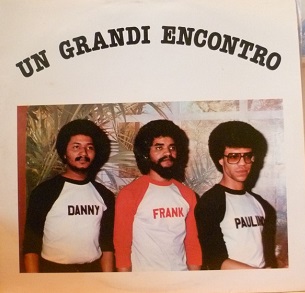
Frank de Pina began recording solo in 1983. His first LP is called Mokeros. Following this are Frank de Pina (1984), Spedjo di nos alma (1986), Ansiedade (1990), Bis ôtu Bés (1996) and Viravolta dun Vaivém (2000). His repertoire is generally composed of mornas, koladeras, funanás. His voice is reminiscent of Ildo Lobo, a fact that at the beginning of his career earned him suggestions that he was imitating the singer, as reported by the newspaper Voz di Povo (10.25.1986), on one of his trips to Cape Verde to perform at the Baía das Gatas Festival.
Currently, living in Randolph, near Boston, Frank de Pina only performs sporadically in live music venues in the Cape Verdean community, which the covid pandemic disrupted.
Cover of the LP Um Grande Encontro (1984), a project that brings together Dany Carvalho, Frank de Pina and Paulino Vieira.
Discography
- Mokeros, LP, author’s edition, Lisbon, 1983.
- Frank de Pina, LP, author’s edition, 1984.
- Spedjo di nos alma, LP, author’s edition, Dorchester,1986.
- Ansiedade, LP, author’s edition, Dorchester, 1990.
- Bis ôtu Bés, CD, author’s edition, Boston, 1996.
- Vira volta dun vai ven, CD, author’s edition, Boston, 2000.
- Participation in the LP Um Grande Encontro (with Paulino Vieira and Dany Carvalho), 1984.
